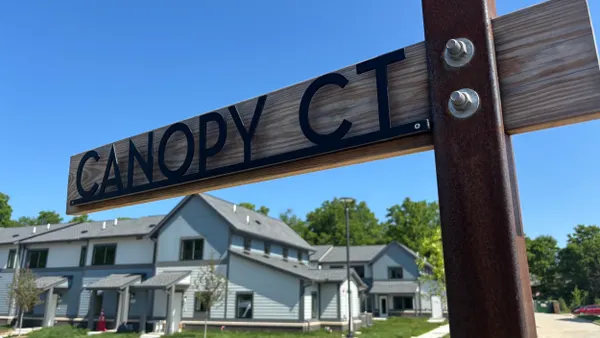Dive Brief:
-
The state of California has approved San Francisco’s plan to add over 82,000 homes by 2031, allowing the city to more than triple its average annual housing production, according to a press release Wednesday from Gov. Gavin Newsom’s office.
-
More than half the homes will be affordable units for low- and moderate-income households to help the region meet its affordable housing goals. The plan calls for approving at least 30,000 non-discretionary units, which are less likely to be stalled in review, the press release said.
-
“Through stringent state mandates with real consequences for failing to meet their obligation, San Francisco is showing what is possible when you stop kicking the can down the road and start to face the difficult decisions it takes to tackle the housing needs of Californians,” Newsom said in a statement.
Dive Insight:
The California Department of Housing and Community Development announced in August that it would review San Francisco’s housing policies and practices to identify and remove barriers to approving and constructing new housing. It was the department’s first review of a city’s housing approval processes.
At the time, it took longer for housing projects in San Francisco to start construction than any other city in the state, contributing to exceptionally high housing and construction costs, according to HCD. The department had said it received more complaints about San Francisco’s policies than any other locality. Seattle, which is similar in size, approves housing construction at three times the rate of San Francisco, HCD said in August.
The California Housing Element Law requires local governments to adopt plans and regulations that allow and do not unnecessarily restrict private market housing development, according to the city’s plan, which calls for an additional 82,069 housing units by 2031. Under the law, local governments must create housing plans that help each region meet its specific housing target, known as a Regional Housing Needs Allocation. The Association of Bay Area Governments and a regional planning agency set the target, which HCD approved.
HCD will continue to provide the city with technical assistance to ensure San Francisco stays on track to meet its affordable housing goals. If the city does not approve at least 29,000 homes within four years, it would need to rezone additional sites to allow more housing construction. There are similar requirements regarding housing production for lower-income residents.
“I hope this model of cooperation continues going forward, and that other cities take advantage of the resources and technical assistance made available by HCD towards housing element compliance,” HCD Director Gustavo Velasquez said in a statement.
In September, Newsom signed the Middle-Class Housing Act to streamline approval processes for affordable housing and encourage transit-oriented development.











